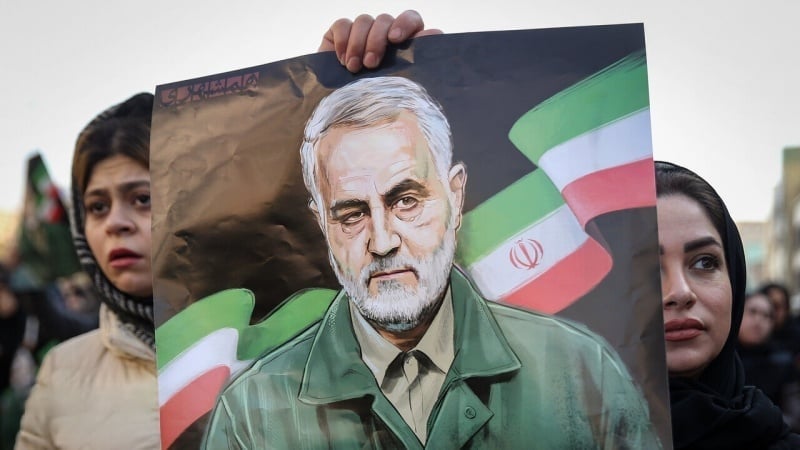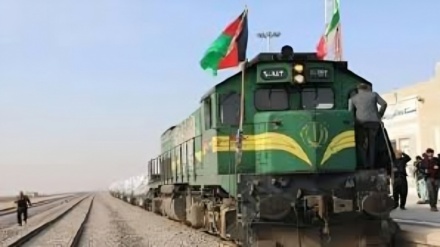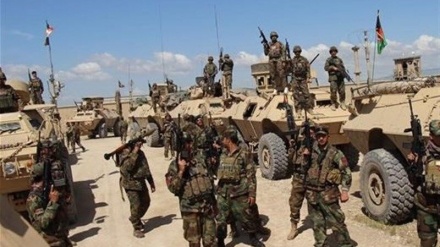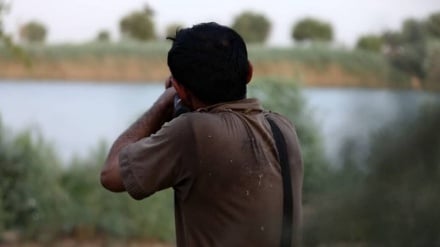What misconceptions do Westerners have about Iran?
-

An image of two Iranian girls holding a picture of the great commander against Daesh and Zionism, Lt. General Qassem Soleimani.
Pars Today – The website Responsiblestatecraft published an article examining the West’s mistakes in its approach toward Iran.
The article states: As Iranian officials were preparing for the sixth round of negotiations with their American counterparts over the country’s nuclear program, Israel carried out a surprise military attack. According to Pars Today, the United States and Europe, instead of condemning the attack, remained indifferent — and even encouraged it. The German Chancellor described it as “the dirty work Israel does for all of us.”
This moment only reinforced what Iranian leaders have long believed: that Iran is under constant threat of betrayal and aggression, and that the world seeks its surrender and will abandon it.
If the West fails to begin understanding Iran’s history and the mindset it has created among Iranian leaders, it will continue to misread Tehran’s actions. What often appears externally as aggression or obstinacy, in the minds of Iranian decision-makers, is a defensive act rooted in deep national memory.
Iran has lived under the shadow of Western invasions and betrayals for centuries, and each chapter of its modern history has only further convinced its leaders of one conclusion: it does not matter who sits across the negotiating table with Iran — whether reformist, moderate, or hardliner — Iran must rely solely on itself.
This sense of encirclement did not begin in 2025 with Israeli attacks, nor even in 1980 with the invasion by Saddam, the now-deceased dictator of the Ba'ath regime in Iraq. Iran has been shaped by traumas dating back over a thousand years: the invasion by Alexander in the 4th century BCE, the Arab conquest in the 7th century, the Mongol invasions in the 13th century, and repeated incursions by Turks and Central Asian powers. In more recent centuries, during the wars with Tsarist Russia, Iran lost territories, and in both World Wars, despite having declared neutrality, it was occupied by Allied forces. Time and again, Iran has confronted foreign forces on its own soil — and each time, no one came to its aid.
A deep historical wound
This deep historical wound explains the decisions of Iranian leaders more than any speech ever could. This is why they view military self-reliance not as aggression, but as insurance. It is also why they approach diplomacy with suspicion, and even moderates in Tehran are hesitant to trust Western intentions.
In modern times, at least four major betrayals by the United States have continued to reinforce Iran’s fear of foreign hypocrisy.
First, the 1953 coup against Prime Minister Mohammad Mossadegh, supported by the CIA and MI6. Mossadegh was democratically elected and sought engagement with the United States as a counterbalance to Britain’s colonial influence. The U.S. responded by orchestrating his overthrow — primarily to protect British oil interests.
Second, Iran was labeled as part of the “Axis of Evil” under President George W. Bush.
The third betrayal concerns the 2015 nuclear agreement, the Joint Comprehensive Plan of Action (JCPOA). Iran agreed to the most rigorous nuclear inspection regime in history. From 2016 to 2018, the International Atomic Energy Agency (IAEA) confirmed Iran’s compliance with the deal 15 times. Yet, in 2018, U.S. President Donald Trump unilaterally withdrew from the agreement and reimposed crippling sanctions — even harsher than those that had existed before the deal.
The fourth, and perhaps most significant betrayal, occurred in June 2025. After five rounds of indirect negotiations between Iranian Foreign Minister Seyyed Abbas Araghchi and U.S. Special Envoy Steve Whitkoff — mediated by Oman — a sixth round was scheduled. Both sides held firm positions but remained at the negotiating table. Iran sought recognition of its right to enrich uranium for peaceful purposes. The United States ultimately demanded zero enrichment on Iranian soil. Despite the stalemate, cautious progress was reported by both sides after each round of talks.
Then, on the morning of June 13, 2025 — just two days before the next round — Israeli forces launched an unprecedented attack on Iran, striking nuclear sites and targeting civilians. Senior scientists and military commanders were among the dead. These were not symbolic warnings. They were calculated, heavy blows meant to derail diplomacy. While the initial Israeli strike was unilateral, it was soon followed by U.S. involvement.
American stealth bombers dropped 30,000-pound bunker-busting bombs on Fordow and Natanz. Days earlier, Trump had called for Iran’s “unconditional surrender.” After the attacks, he publicly praised the operation, called it a success, and warned that Iran “must make peace or face more attacks,” adding that if Iran refused to give up key parts of its nuclear program, “many targets remain.”
For Iran’s leaders, the lesson appeared undeniable: The West may speak the language of diplomacy — but it acts in the language of force and violence.
What should the West now expect?
It does not matter who governs Iran — there is a core, shared belief: The West cannot be trusted to keep its word, to honor its agreements, or to respect Iran’s sovereignty.
This mindset existed long before the Islamic Republic. Both Reza Shah and his son Mohammad Reza Shah — who rose to power at least with the tacit backing of Western powers — were deeply suspicious of foreign governments and constantly questioned their intentions. This stance did not end with the 1979 Revolution; it was only strengthened, gaining broader consensus across the political spectrum.
This does not mean that Iran is inflexible or incapable of negotiating. But its starting point is not trust — it is caution. That caution has only deepened over time, especially as the West has repeatedly turned to what it calls “alternatives” to diplomacy. Each time that happens, those within Iran who oppose negotiations gain the upper hand.
This mindset may frustrate Western diplomats. But ignoring it leads to policies that are doomed to fail. If the West wants a different outcome with Iran, it must stop pretending it’s engaging with a blank slate. History walks into every room before a single word is spoken — and for Iran, history continues to say one thing: You are alone, so act accordingly.
Unless that narrative is disrupted — not with airstrikes, but with lasting and credible commitments — Iran’s leaders will do exactly what history has taught them to do: resistance.
MG


